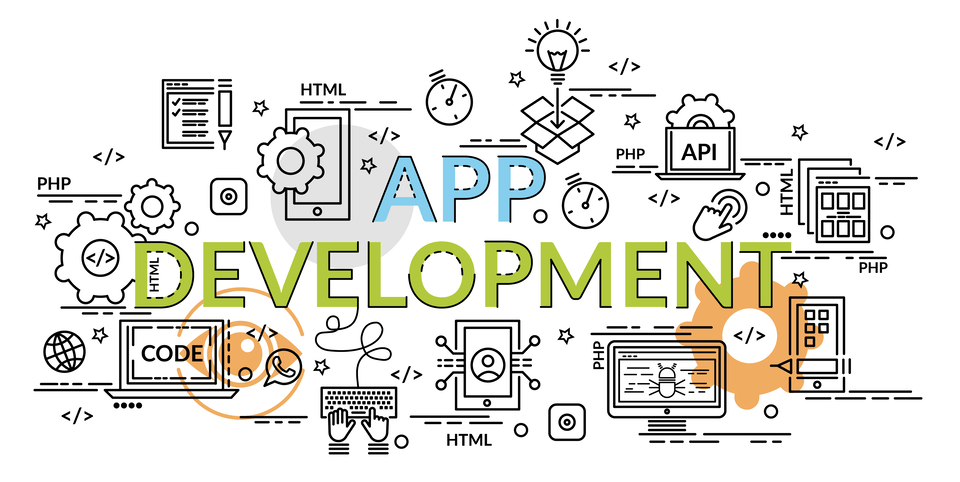The Rise Of Ai In Manufacturing: Transforming Industries For The Longer Term
Manufacturers across numerous sectors are more and more recognizing the worth proposition of AI in revolutionizing conventional manufacturing processes. Key functions of AI in Manufacturing include predictive maintenance, quality management, manufacturing planning, course of optimization, provide chain administration, and extra. These AI-powered options enable manufacturers to make data-driven decisions, improve product high quality, reduce downtime, and streamline operations. Based on know-how, the global AI in manufacturing market is segmented into machine studying (ML), pure language processing (NLP), context-aware computing, pc imaginative and prescient, speech and voice recognition, and machine reasoning. In 2024, the machine learning phase is anticipated to account for the largest share of 67.7% of the global AI in manufacturing market.

For occasion, Samsung’s South Korea plant uses automated automobiles (AGVs), robots and mechanical arms for tasks like assembly, material transport, and quality checks for telephones like Galaxy S23 and Z Flip 5. These tools can help companies preserve high-quality standards, including inspections of 30,000 to 50,000 parts. Moreover, the market in Asia-Pacific is projected to record the highest https://www.globalcloudteam.com/ai-in-manufacturing-transforming-the-industry/ CAGR of 34.1% in the course of the forecast period. For a complete understanding and in-depth evaluation of this market, we invite you to delve into our detailed report. Click here to download a pattern report and empower yourself with the information that drives knowledgeable decisions. SkyQuest is an IP focused Research and Investment Bank and Accelerator of Technology and belongings.
Ai In Manufacturing Market – Global Alternative Analysis And Industry Forecast (2024-
Quality management helps make positive that products meet customer expectations and regulatory requirements. It helps firms enhance buyer satisfaction, reduce product returns and remembers, improve brand reputation, and adjust to industry standards and regulations. The rising adoption of IoT and massive data in manufacturing industries is the primary issue driving the synthetic intelligence in manufacturing market progress. IoT will allow the delivery of supplies and providers to the customer who may be unaware that they are required. Furthermore, IoT can ship detailed telemetry again to producers and distributors to have the ability to scrutinise quality and components that will trigger failures.
- The increasing demand for Artificial Intelligence (AI) within the Manufacturing Market of the US region is propelled by the crucial to effectively manage the rising volume and intricacy of data.
- AI in manufacturing has many different potential makes use of and benefits, corresponding to improved demand forecasting and reduced waste of uncooked supplies.
- Ultimately, AI-driven linked factories decrease prices, enhance total operational effectivity, and enhance productiveness by constructing data-driven, adaptive manufacturing ecosystems that adjust rapidly to changing circumstances.
- The integration of AI in manufacturing is driving a paradigm shift, propelling the trade in course of unprecedented advancements and efficiencies.
- To create, oversee, and put into apply complex AI methods, companies necessitate a workforce geared up with specific ability sets.
From automated factories to AI high quality management, the primary goal of digital transformation is forging a aggressive edge by way of expertise, leading to enhanced customer experiences and reduced operational prices. Manufacturing processes generate substantial quantities of proprietary and confidential info, and the combination of AI introduces new security dangers similar to unauthorized entry, information breaches, and intellectual property theft. Compliance with knowledge privateness rules, both domestic and international, provides complexity, requiring producers to navigate a regulatory panorama that features GDPR and industry-specific pointers. Cross-border information transfers and moral concerns associated to transparency and accountability further complicate AI implementations. Manufacturers should prioritize secure connectivity, address data ownership agreements, and improve employee training to fortify their cybersecurity measures.
My Services
By leveraging machine learning, predictive maintenance helps prevent unplanned downtime, thereby optimizing operational effectivity. Furthermore, superior analytics and sensors embedded in manufacturing systems enable predictive maintenance by promptly reacting to alerts and resolving machine issues before they escalate. This proactive method not solely minimizes downtime but also enhances productivity and cost-effectiveness in manufacturing operations. In 2024, the predictive upkeep & equipment inspection section is anticipated to account for the most important share of 20.6% of the global AI in manufacturing market. Predictive upkeep and high quality management are crucial features of contemporary manufacturing operations which might be driving the demand for AI solutions in the industry. Therefore, manufacturers depend on AI-based predictive upkeep to make sure minimal downtime and most returns on funding from their gear.
Smart manufacturing is a technology-driven approach that utilizes interconnected machines to observe the manufacturing course of. It combines superior applied sciences, including synthetic intelligence, robotics, IoT units, and digital twins, which optimize manufacturing procedures via automation for minimizing prices and maximizing productivity. The key applications of Industry four.0 and sensible manufacturing are using AI and machine studying algorithms to research vast amounts of knowledge generated by related devices and sensors on the manufacturing facility floor. This knowledge is used to establish patterns, predict equipment failures, and optimize production processes. In 2023, machine studying emerged as the dominant drive in the synthetic intelligence in manufacturing market, claiming the best market share amongst all applied sciences. This trend stems from the growing crucial to make sure stringent quality management across each aspect of the manufacturing course of.
Latest Trade News Of Ai In Manufacturing Market
This software demonstrates how AI helps data-driven decision-making and innovation in product improvement processes within the semiconductor manufacturing business. However, the medical gadgets segment is predicted to register the best CAGR in the course of the forecast period. This section’s development is driven by growing demand for advanced healthcare technologies, regulatory compliance requirements, and the necessity for improved effectivity and high quality in medical system manufacturing processes. Artificial intelligence (AI) within the manufacturing market is slated to largely profit from the predictive upkeep sub-segment across the forecast interval.

These firms are continuously innovating and developing cutting-edge AI solutions to cater to the evolving wants of the manufacturing trade. Asia-Pacific area exhibited quickest growing CAGR for market of artificial intelligence in manufacturing through the analysis interval of 2024 to 2032. The world artificial intelligence (AI) in manufacturing market has been segmented into part, expertise, software, vertical, and area. Additive processes are major targets because their merchandise are dearer and smaller in volume. In the lengthy run, as humans grow AI and mature it, it’s going to doubtless become necessary throughout the complete manufacturing value chain. AI has an essential position in generative design, a course of by which a design engineer enters a set of necessities for a project after which design software program creates a quantity of iterations.
The digital twin of their manufacturing services can precisely establish energy losses and point out places where power could be saved, and overall manufacturing line efficiency may be elevated. By modifying production parameters in response to variations in demand, intelligent automation lowers waste and improves resource utilization. AI turns meeting traces into data-driven, versatile environments by way of fixed learning and adaptation, ultimately boosting output, decreasing expenses, and upholding high standards in manufacturing processes. Artificial intelligence is revolutionizing the manufacturing trade with its transformative capabilities. Major manufacturing companies are leveraging the facility of AI to enhance efficiency, accuracy, and productiveness throughout numerous processes. Moreover, the predictive upkeep & equipment inspection section is projected to register the highest CAGR in the course of the forecast period.
The Asia Pacific, led by China, Japan, and South Korea, is taken into account the most important market for industrial robots. Furthermore, Many small and mid-sized enterprises (SMEs) are present in the international locations in Asia Pacific thought-about on this examine. The US is the early adopter of new applied sciences for application corresponding to manufacturing facility automation, course of planning, engineering design, and manufacturing scheduling among others. A. AI enhances product quality and reduces defects in manufacturing by way of data evaluation, anomaly detection, and predictive maintenance, making certain constant standards and minimizing waste. The semiconductor industry also showcases the influence of synthetic intelligence in manufacturing and production. Companies that make graphics processing items (GPUs) heavily make the most of AI in their design processes.
View All Common Enterprise
Historians observe human progress from the Stone Age via the Bronze Age, Iron Age, and so forth, gauging evolutionary improvement based mostly on human mastery of the pure setting, materials, tools, and technologies. In this electronics-based period, people are collectively enhanced by computer systems, leverage unprecedented power over the pure world, and have a synergistic capacity to accomplish issues inconceivable a number of generations in the past. The manufacturing unit of the future is intuitive, smart, and loaded with sensors—all thanks to AI in manufacturing.
Such a system would permit a manufacturer to take a look at the half that made right now, evaluate it to the half made yesterday, see that product quality assurance is being done, and analyze the NDT that’s been accomplished for each process on the road. The feedback would assist the manufacturer understand precisely what parameters have been used to make those elements and then, from the sensor information, see where there are defects. The fully autonomous manufacturing unit has at all times been a provocative imaginative and prescient, much utilized in speculative fiction.
AI helps the trade tackle various inside challenges, such as lack of know-how, advanced decision-making, compatibility issues, and data overload. By integrating AI, manufacturing crops can utterly transform their operations, leading to a significant boom in AI adoption throughout the manufacturing sector. There are many applications for AI in manufacturing as industrial IoT and sensible factories generate massive amounts of knowledge every day. AI in manufacturing is the use of machine studying (ML) options and deep learning neural networks to optimize manufacturing processes with improved information evaluation and decision-making. By applying AI to manufacturing data, companies can better predict and forestall machine failure. AI in manufacturing has many other potential uses and benefits, corresponding to improved demand forecasting and decreased waste of uncooked supplies.
To create, oversee, and put into follow complex AI systems, companies necessitate a workforce outfitted with specific ability units. Individuals tasked with handling AI methods should possess data in technologies like cognitive computing, machine studying, synthetic intelligence, deep learning, and image recognition. In rising economies, the scarcity of a certified workforce presents a noteworthy hurdle, particularly when juxtaposed with AI-advanced nations like the United States, the United Kingdom, Japan, and Germany. A move toward an AI-enabled factory floor would require producers to reskill their existing workforce and develop, build, and practice AI systems.

Sensors within the machines can link to models which might be constructed up from a big knowledge set realized from the manufacturing process for particular parts. Once sensor data is available, it’s possible to construct a machine-learning model using the sensor data—for example, to correlate with a defect observed within the CT scan. The sensor knowledge can flag parts that the analytic mannequin suggests are prone to be defective with out requiring the part to be CT-scanned. Only those parts could be scanned as an alternative of routinely scanning all parts as they come off the line.
Considerations Regarding Knowledge Privateness And Cybersecurity Laws
The market breakdown and information triangulation procedures had been employed wherever applicable to complete the overall market engineering process and gauge actual statistics for all segments. The knowledge have been triangulated by learning varied components and developments from each the demand and provide sides. The secondary knowledge were collected and analyzed to estimate the general market dimension, further validated by major research. The related information is collected from varied secondary sources, it is analyzed to extract insights and knowledge relevant to the market analysis aims. This evaluation has concerned summarizing the information, figuring out tendencies, and drawing conclusions based mostly on the obtainable data.

This proactive approach towards technological advancement positions North America as a key participant within the international synthetic intelligence in manufacturing panorama. According to artificial intelligence in manufacturing trade evaluation, the hardware section is poised to take the lead in the market share over the projected years. This phase encompasses essential components like processors and logic circuits, basically powering the AI software program.
Appinventiv’s experience in creating cutting-edge AI and ML products particularly tailor-made for manufacturing companies has positioned the company as a pacesetter in the trade. Ultimately, AI-driven linked factories lower prices, enhance general operational effectivity, and increase productiveness by building data-driven, adaptive manufacturing ecosystems that adjust quickly to changing circumstances. Furthermore, the enterprise optimizes logistics with AI-powered routing algorithms, enabling sooner and more economical delivery. In the fiercely competitive retail sector, Walmart’s utilization of AI into supply chain operations exemplifies how cutting-edge technologies improve decision-making, responsiveness, and total supply chain resilience.
For example, applying thermal remedy on an additive half can be carried out straight from the 3D printer. It could probably be that the fabric comes in pre-tempered or it must be retempered, requiring one other heat cycle. Engineers could run numerous what-if eventualities to discover out what type of equipment the facility should have—it could make more sense to subcontract components of the process to another company close by. Manufacturers should safeguard sensitive info collected by AI algorithms to prevent unauthorized access or data breaches. Compliance with data safety laws, corresponding to GDPR and CCPA, is important to take care of consumer belief and avoid authorized repercussions.

